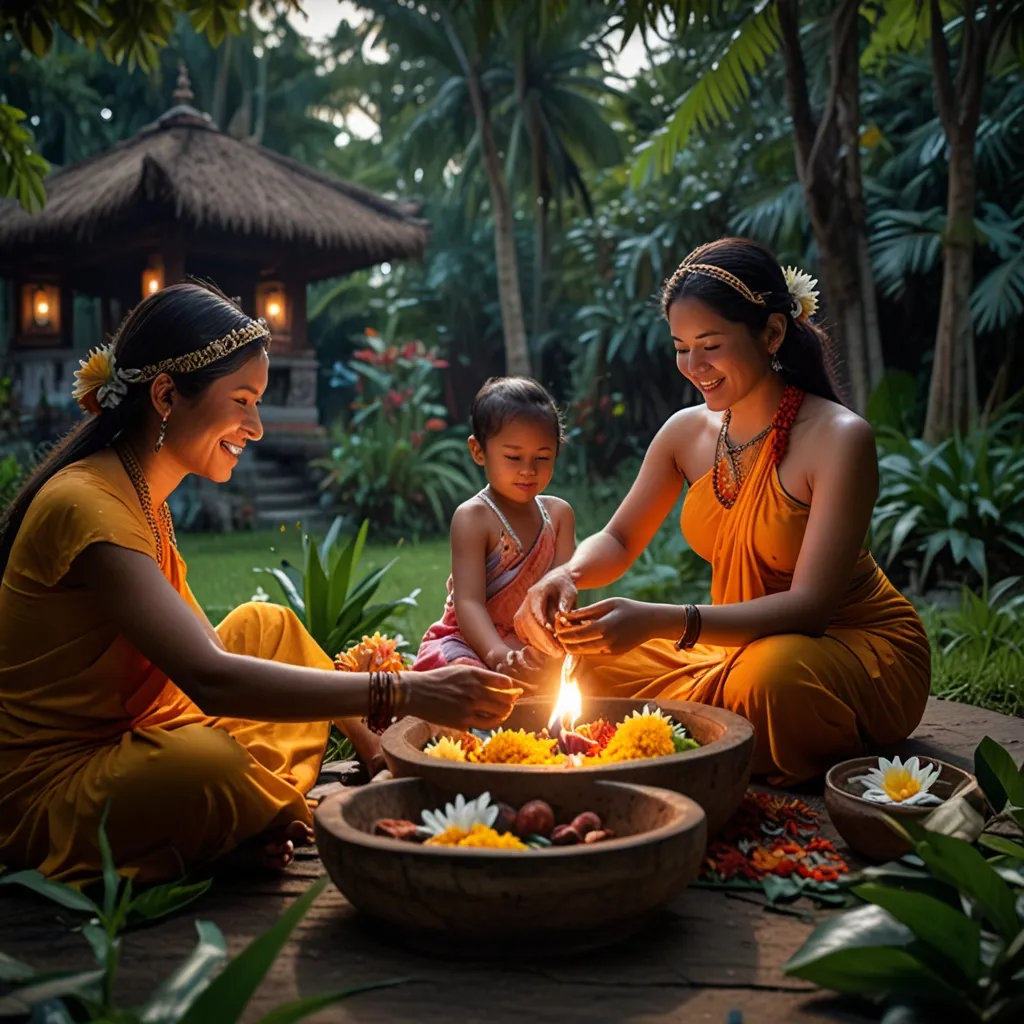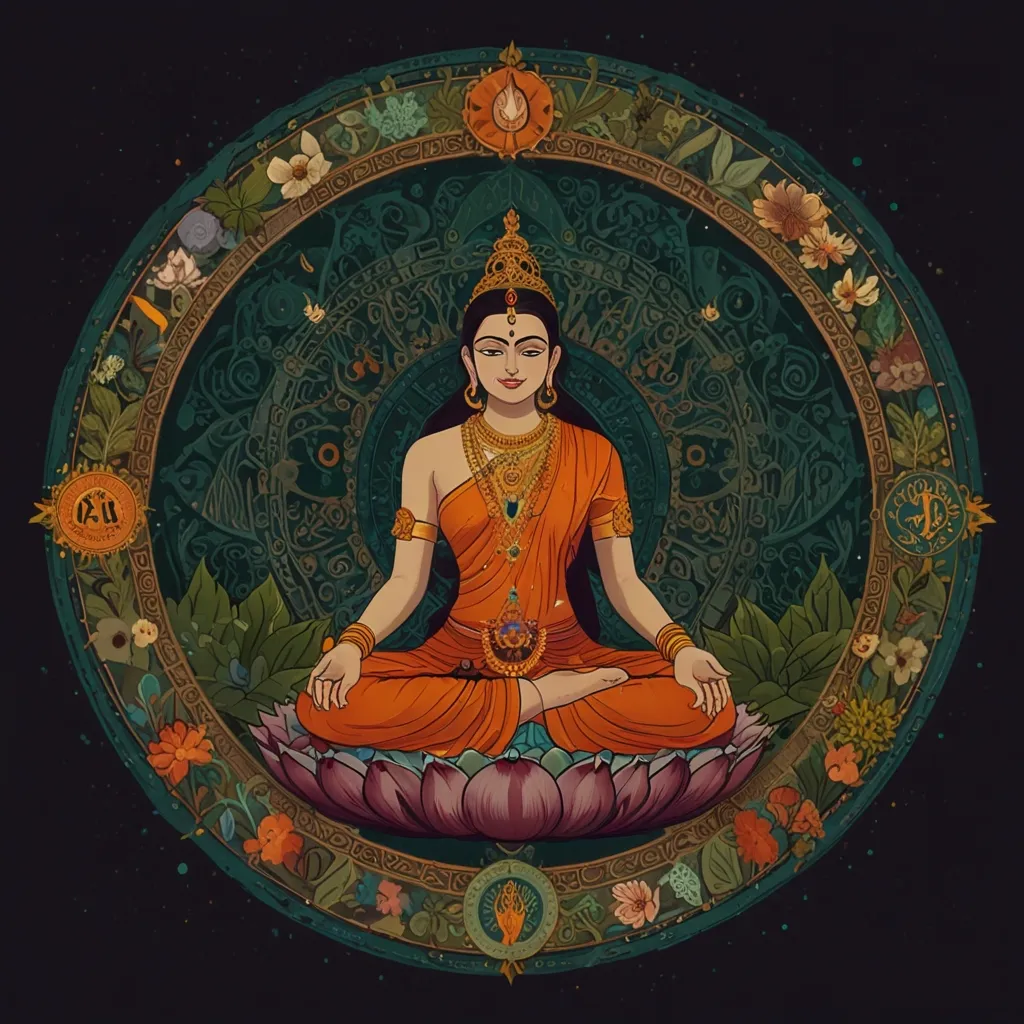Gratitude runs deep in Hinduism, blending seamlessly into daily life. It’s not just about feeling thankful; it’s about living it every day. In Bali, for instance, gratitude is a daily gig. Families make it a point to gather and give thanks for everything – homes, families, even the little things like food and comfort.
In the workplace, this gratitude vibe continues. Everyone takes a moment to appreciate their jobs and colleagues. The Balinese offering tradition involves leaving small containers filled with flowers, food, and incense around as a nod to their thankful hearts.
This daily practice is pretty life-changing. It’s a consistent reminder that gratitude isn’t just for the big wins. The Balinese express thanks to their ancestors, gods, nature – the sun, moon, wind – and even animals that provide food or objects like brooms that keep their homes clean.
In Hinduism, gratitude isn’t just about uttering thank you. It often involves making symbolic offerings. These acts show that blessings aren’t one-way. Giving back, whether through service or offerings, is crucial.
Hindu teachings stress debts we owe – to God for life, to the wise for knowledge, to ancestors for our existence, to fellow humans for support, and to nature for sustenance. These debts are settled through acts of gratitude and service.
Gratitude rewires focus from what’s missing to what’s already there, making life more positive and satisfying. It builds a sense of community and interconnectedness, reminding us that everything we have comes from collective efforts and sacrifices.
Linking gratitude to karma, Hindu philosophy sees grateful actions as building better karma. It ties in with dharma, or right living, which includes being thankful for one’s blessings.
Gratitude is also a spiritual growth hack. It nurtures humility and compassion, essential for spiritual progress. Recognizing divine grace and the interconnectedness of life leads to peace and contentment.
Practically, adding gratitude to daily life can be as simple as taking a daily moment to count blessings. Saying thank you to those who help or finding joy in small pleasures does wonders. This can be a solo thing or a communal activity, much like in Bali.
In the end, gratitude is more than a feeling – it’s a life-changer. It shifts your perspective, strengthens your bonds, and boosts spiritual growth. Embracing gratitude can make life more fulfilling and aligned with Hindu principles of thankfulness and service.






